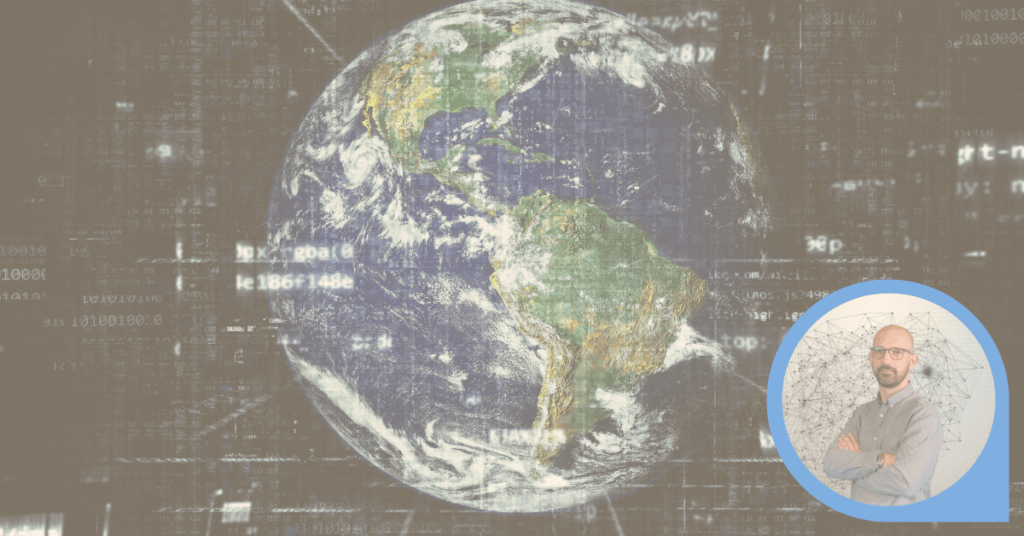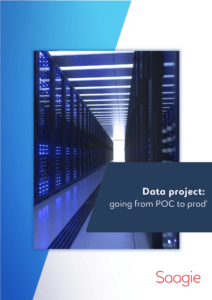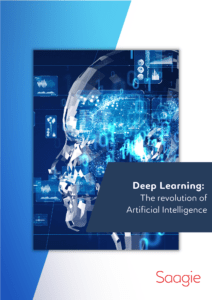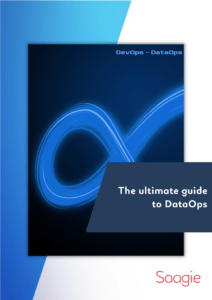This week, let’s talk about smart cities with François-Xavier Pierrel, Group CDO of JCDecaux! Yes, JCDecaux, leader in display advertising since 1964, located in more than 80 countries, also has a say in the digital transformation of cities.
Could you explain your mission at JCDecaux?
After a stint at Renault and Facebook, I joined JCDecaux at the end of 2018 with the mission of starting from a blank sheet and writing the trajectory, that is to say putting in place the strategy and the program, as well as the structuring of the data team, for the next 3 years at least.
First of all, we started from a fairly traditional vision when we started out in data: the data team was only made up of four data scientists at the time, and the company’s desire was to strengthen this department. Thus, the strategy was deployed as follows:
- During the first year, we built the infrastructure with the technical and human resources to follow this roadmap.
- The second year served us to set up use cases provided by our subsidiaries and businesses to quickly prove the added value of data projects.
- This year, the challenge is to industrialize and scale up to better serve not only our customers, but also the other departments of JCDecaux.
When I arrived, the first project implemented was to set up data governance between the 80 countries where JCDecaux is located. Then, it was a question of setting up the projects that were brought in by the countries through governance.
Since your arrival in 2018, how has the company's strategy evolved?
The strategy is still more or less the same, and is divided into three consecutive stages: the first stage is to win a call for tenders from private or public sponsors (airports, stations, cities, etc.), then to deploy and operate the assets and finally, in the third step comes the sale of media. We first worked a lot on our industry, namely the media.
We have therefore coneptualized audience segmentation and performance measures. In the middle of the second year, we mainly focused on the concepts of operation and maintenance. And today, we are developing projects that are further from our core business, but which aim to optimize the overall functioning of the company. It is with this in mind that we have been able to develop modeling and forecasting tools.
What is interesting to note, is that the role of the data team within an organization such as JCDecaux is to participate in the fundamental transformation of the company. There are very few industries that have not been hit hard by digital technology. While outdoor advertising has changed little over the past fifty years, overnight there has been a meteoric acceleration in digital. Until a few years ago, we were selling monthly spaces to put up posters. Today, it is possible to digitize networks by offering more segmented, more interactive, or animated content… Once this turn is taken, then a whole field of possibilities opens up to us, such as programmatic, for example, or the establishment of forecasts …. All this requires data, to understand the audiences and the levers.
Even though it took two or three years to turn the corner, today we can say that the hard part is done.
How did you go from an organization that sells advertising space to a business that sells audiences?
The traditional dimension still exists because all our panels are not yet digitized throughout the world. But we are already seeing that the return on investment of digital panels is much higher than that of paper panels. Indeed, digital technology gives us access to a variety of types of advertisers, it is also possible to segment by time and audiences, which allows us to have greater commercial and data flexibility.
Usually, the role of the CDO is to convince management of the relevance of the chosen data strategy. When I arrived, the management had already made the choice to transform, which allowed me to very quickly think about how to get started with first of all an operational core made up of data scientists and data engineers in order to be autonomous in the solutions, in the technologies and in the way we were going to operate. This division still represents half of the data team within JCDecaux. We then came to complete this group of data scientists with a Growth team which is a mix between product marketing and support, and aims to have our solutions adopted by the markets. We subsequently opened a third structure, which manages our data partnerships and must therefore find the data on the market (technical or data sets).
We have also created a fourth team, responsible for communication. This is one of our main levers for transformation. The challenge, in this context, is to popularize and educate on subjects that are not obvious. Finally, the last team is responsible for coordinating our solutions with the group’s key accounts around these subjects. Thus, in two and a half years, the team has grown from two data scientists to a structured center of forty-five people. This organization aims to take on what we are, that is to say technicians with a good understanding of the market and the trades with which we will collaborate.
What types of data are your segmentations and targeting based on? How do your data teams work in practice to better advise your customers?
If we consider the entire media and advertising ecosystem, we have a large machinery that brings together the GAFAs, they know the cross-device users, the notion of ultra-personalization is preponderant. At JCDecaux, on the other hand, we do mass media. We have a need for different data, which remains precise but at a higher mesh size.
Thus, we are closely interested in the elements of location, interests, and audience segmentation. More specifically, the questions we ask ourselves are the following:
- What are the population flows?
- Who are they ? We therefore base ourselves on location data, data of interest, or even income to establish group links
- Where are they going to work or why are they coming to this place?
- What's in this particular neighborhood? Shops? Schools? Cultural places?
Secondly, we have three types of data :
- In the most advanced countries in terms of data, we have been able to set up wifi sensors that allow us to quantify our audiences at time T. We obviously cannot do this everywhere, we are adapting to legislation and offering the appropriate technologies. Market by market.
- Indeed, we had the opportunity to have partnership contracts allowing us to collect sales receipts in order to offer adequate content according to time slots or type of audience. This is precisely what we have done with Monoprix, always anonymously of course!
- We also do a lot of open data and mobile and programmatic data purchasing. We then aggregate all this data to provide precise analyzes and adapt our offers.
What concrete applications have you been able to make of data?
The Covid crisis encouraged us to rely all the more on data as JCDecaux is one of the leading players in airports from an advertising point of view. In fact, we operate about 180 airports. We have found that, for years, passenger flows have always been the same. Overnight, we became unable to forecast air traffic due to changing political decisions or simply the evolution of virus expansion. Our mission today is to find out what the recovery scenarios would be. We have to find answers within a constrained framework. Based on airport data, forecasts announced by airlines and other industry players, and we try to model five-year forecasts with complementary scenarios, using data. Without the health crisis, we would not yet be interested in this problem.
In addition, after the first phase of the covid – the first confinement – it was necessary to anticipate the return of audiences in the cities. To do this, we aggregated data into open data and purchased data (volume of cash register data at Monoprix, public transport transaction) to develop mobility indices, for a dozen countries, allowing us to establish precisely when people return and why. This is how we saw, after this first confinement, the explosion of individual transport such as self-service bicycles, while the number of users in public transport fell. This is the case in Paris in particular. We were able to establish points of comparison by country, and these findings enabled us to make deconfinement projections according to the country.
We know the impact this has on advertisers, but what about cities? How do these now “intelligent” panels transform them?
Indeed, there are service topics and innovation topics, which concern wi-fi sensors to understand population flows. It is possible to put them on bus shelters or in panels, which has enabled us to set up a whole program around pollution (detection of fine particles, humidity levels) in cities. We are currently doing the first tests in Japan, we are going to return the first results to the cities with which we collaborate, either in raw data or with data visualization to explain the different phenomena.
JCDecaux is also a player in soft mobility with a self-service bicycle service in more than 60 cities. We are currently working on two topics:
- Accurately predict the wait time at a bike station when no vehicle is present. To do this, we analyze the flows to model and restore a waiting time.
- At the same time, these flow analyzes allow us to optimize the distribution of bicycles by our operational teams and to know where the demand will be greatest according to the schedules.
Data is a new subject for us, we are already working with some cities, but we hope that these projects will develop in the coming months.
How do you think we can go even further in this area with MLOps, AIOps?
At JCDecaux, we started by doing haute couture, now we have to do ready-to-wear! In other words, we have started to put use cases into production in an artisanal way, and now we want to automate and industrialize projects. Indeed, the data department has gained its credibility within the group, and project requests are increasing. In the early days of the data hub, we worked with two countries, today we support more than thirty. It is possible to keep a “haute couture” aspect on very strategic subjects, but if we want to respond to the group’s demands, it is crucial to structure our offer. Thus, we wish to inject DevOps, MLOps and AIOps into our processes in order to facilitate the start of production of all these projects.
The next step that will come in the second half of this year is how we are going to achieve this scale-up. It is therefore essential to equip ourselves with solutions that will make it possible to respond to these problems. We have also supplemented our team with three new Data Engineers as well as our first DevOps, to ramp up.
In your opinion, in which geographical areas are you the most advanced?
Our specificity is that we can adapt to very various environments. Regarding use cases, some emerging countries are more advanced in terms of data analysis and we are already able to respond to concrete issues in these geographic areas. For example, in Nigeria, we are able to calculate travel times based on traffic on the roads that cross Lagos from door to door. We also do audience measurements at airports.
We have developed audience measurements for the world’s largest metro in Shanghai (15 million passengers per day). It is important to stress that these countries have a great capacity to be adaptable and force of proposal in terms of data.
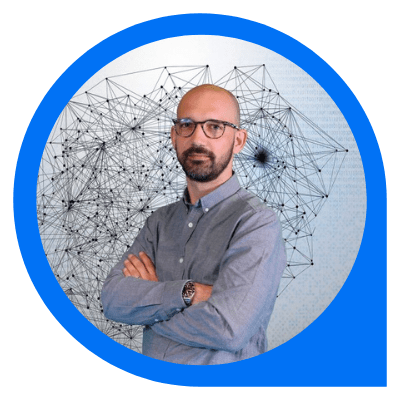
François-Xavier Pierrel is the Chief Data Officer for JCDecaux. He is responsible for the JCDecaux global data strategy to accelerate the digital transformation of the Out-Of-Home media.
Prior to JCDecaux, he spent several years at Renault, Microsoft, and Facebook. François-Xavier has an extensive background in data to enable digital transformation.


